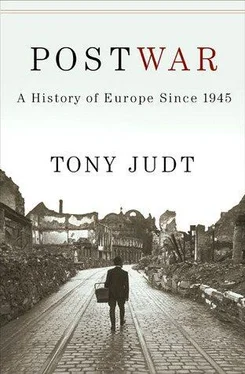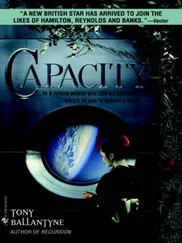The wartime ‘Chetnik’ partisans were named after upland guerilla bands who had fought against Serbia’s Ottoman rulers in the eighteenth century.
But not all—the Greek Communists’ opportunistic post-war support for the annexation to Communist Bulgaria of ethnically Slav regions of northern Greece did little to advance their cause.
Note though that the Protectorate of Bohemia was run in 1942 by just 1,900 German bureaucrats. In these as other respects, Czechoslovakia was at least partly western.
As late as 1960, 62 out of the 64 prefects responsible for Italy’s provincial administration had held office under Fascism, as had all 135 police chiefs.
The Domobran was the wartime Croatian Home Guard. Of course Tito’s Communist partisans had frequently behaved no better: but they won.
In 1946 the West German Länderrat (Council of regions) recommended to the Allied authorities that in view of current shortages in Germany, food rations for displaced persons be reduced. General Lucius Clay confined his reply to a reminder that the food in question was provided by other European nations, victims of Germany’s own war of aggression.
Stephan Hermlin, Bestimmungsorte (Berlin, 1985), p. 46, quoted in Frank Stern, The Whitewashing of the Yellow Badge (1992), p. xvi
The last armed Italian partisans were rounded up in a series of military operations around Bologna in the autumn of 1948.
Jean Monnet was born in Cognac in 1888, the son of a brandy merchant. Upon leaving school he spent many years living and working abroad, notably in London; after the First World War he was named Secretary General of the new League of Nations. He passed much of the Second World War in the US, negotiating arms supplies on behalf of the British government and the Free French. His devotion to economic planning and his later contribution to the Schuman Plan for European economic cooperation thus drew upon a familiarity with large-scale organization and inter-state collaboration that was strikingly unusual for a Frenchman of his class and time.
Quoted in Maureen Waller, London 1945 (2004), page 150.
Note, though, that 4 out of 10 Communist voters in France were in favour of accepting Marshall Aid, despite the Party’s opposition. French suspicion of the Marshall Plan was not so much political as cultural; many people seem to have been especially offended by what were described as ‘des questionnaires insipides et nombreux’ emanating from American bureaucracies—a particularly irritating reminder of their subordination to an inferior civilisation.
The frontier between Poland and Soviet Russia as proposed by the British Foreign Secretary after the First World War.
Stalin had broken off relations with the Polish government-in-exile in London in 1943 following the latter’s demand for an international examination of the Katyn massacre. The Germans, who uncovered the site, correctly claimed that it was the location of a mass execution by the Soviets of captured Polish officers. The Soviet authorities and their Western supporters, then and for the next half century, angrily denied it.
India and some of the British overseas Dominions had substantial holdings in sterling, built up as credit during the war years especially. Had the pound been freely convertible into dollars in the immediate post-war era many of these holdings might have been run down, thus further weakening Britain’s already fragile stock of foreign exchange. That is why, after an initial, disastrous experiment with convertibility imposed from Washington as a condition for the US loan, Britain re-imposed sterling controls in 1947.
According to Kennan, ‘[O]ur national leaders in Washington had no idea at all, and would probably have been incapable of imagining, what a Soviet occupation, supported by the Russian secret police of Beria’s time, meant for the people who were subjected to it.’
In February 1945, when asked who would do most to help France recover, 25 percent of those polled said the USSR, 24 percent the USA.
Marshall was probably not much reassured to learn from Bidault that this public emphasis upon the German threat was strictly for domestic consumption.
Under the terms of a secret Czech-Soviet agreement of March 1945, the USSR had the right to mine and extract uranium from the Jachymov deposits in Western Bohemia.
In Poland, of course, it was anything but reassuring—just because it was so familiar.
In 1990 Edvard Shevardnadze, the Soviet Foreign Secretary, reportedly observed that despite a forty-year-long Cold War with the United States, when his grandchildren played war games, Germany was still the enemy.
Italy lost all of its colonies, paid $360 million in reparations to the USSR, Yugoslavia, Greece, Albania and Ethiopia, and ceded the Istrian peninsula to Yugoslavia. The disposition of the border city of Trieste remained in dispute for eight more years.
This proved an easy accommodation. In the words of one American GI, pleasantly surprised at his reception in Germany following the rather frosty French response to their liberators, ‘Hell, these people are cleaner and a damned sight friendlier than the French. They’re our kind of people.’ Quoted in Earl Ziemke, The U.S. Army in the Occupation of Germany, 1944-46 (Washington DC, 1985), p. 142.
In September 1947 Andrej Zdanov, speaking as always for his master, would inform delegates at the founding Congress of the Cominform that the Truman Doctrine was directed at least as much against Britain as against the USSR, ‘because it signifies Britain’s expulsion from its sphere of influence in the Mediterranean and the Near East’.
The Bulgarians had actually oscillated quite markedly over the years from enthusiastic pro-Germanism to ultra-Slavophilism. Neither served them well. As a local commentator remarked at the time, Bulgaria always chooses the wrong card… and slams it on the table!
This was not the first time armed Russians had personally supervised crucial Polish elections: during the local parliamentary elections of 1772 at which Poles were asked to chose representatives who would confirm the partition of their country, foreign troops stood menacingly by to ensure the desired outcome.
The Agrarian Party in the Czech lands and its partner, the People’s Party in Slovakia, were banned after the war for connivance with Nazi policies.
Western public opinion was also influenced by Masaryk’s death on March 10th 1948—he was reported to have ‘fallen’ from his window into the courtyard of the Foreign Ministry. The exact circumstances of his death have never been elucidated.
When Tito closed the Greek land border with Yugoslavia in July 1949, following his break with Stalin, the Greek Communist resistance collapsed almost immediately.
The PCI actually increased its vote somewhat at the 1948 elections, but only at the expense of the Socialists, who lost heavily. The victorious Christian Democrats outscored the combined Left by over four million votes.
Читать дальше












